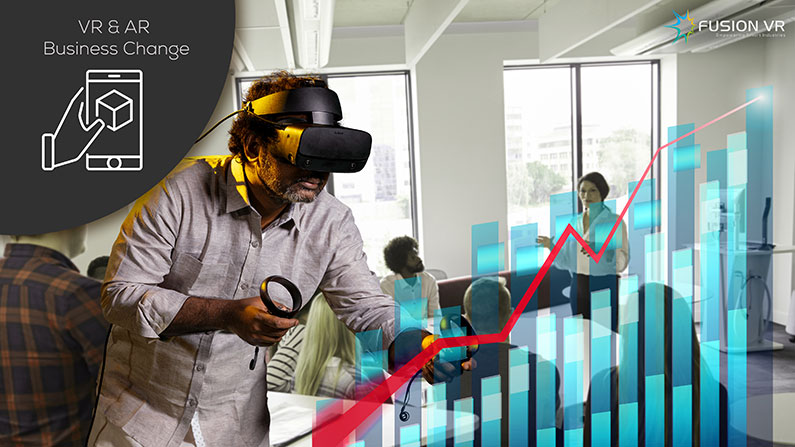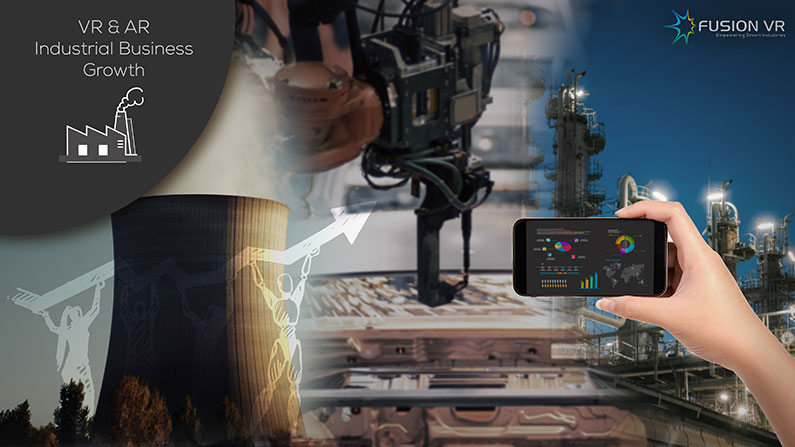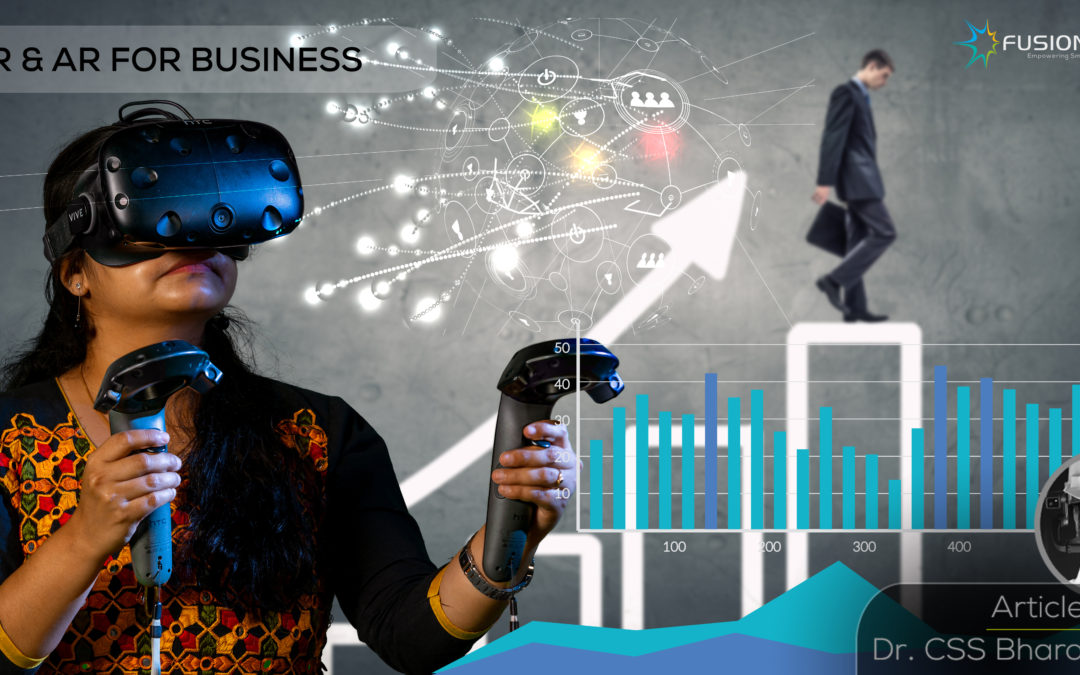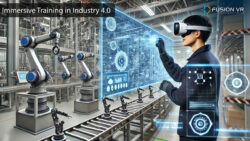It’s well known that business enterprises cannot survive without a well-defined corporate strategy in today’s globalized economy. It’s also ever more important for business leaders to articulate a clear strategy and roadmap. This roadmap along with a clearly worded mission statement is an absolute necessity for managers and their staff, right down to the last person in the company hierarchy to support executing the strategy.
A well-defined strategy helps with the development of detailed plans and its execution with the required focus, dedication and resources. Having no strategy at all and continuing to operate aimlessly can lead to several immediate problems and a potential loss of customers or worse, the survival of the enterprise itself.
Business owners and leaders have many questions on AR/VR and the strategies they need to adopt. It would certainly help to witness and experience augmented reality and virtual reality business examples around them. This blog wishes to provide extensive information on these critical technologies with an informal approach.
Why Businesses need AR and VR for the 21st Century
Many companies that failed to consider new developments and technologies in the marketplace have virtually disappeared. The most famous example we all know of is, Kodak. This once world leader in photography failed to see the advent of digital photography, lost out to emerging competitors and has virtually disappeared from the consumer technology scene. There are many more that have become extinct!
Virtual Reality (VR) and Augmented Reality (AR) are game changers. They have already been identified as key technologies for the Fourth Industrial Revolution or more commonly referred as Industry 4.0. These two technologies are particularly critical to improve human performance in the 21st century. It must be emphasized that companies of the future will be knowledge driven and making key investments in VR/AR must be part of the overall business strategy to realize future competitive advantages.
What does virtual reality and augmented reality mean in business?

As indicated earlier, businesses need to consider VR and AR deployment as part of their overall strategy to drive improvement in critical areas. Understanding what these technologies are and how they impact businesses is fundamental to developing strategies for AR and VR.
Virtual Reality is a computer based technology that immerses a person in a digitally created environment with the use of a head mounted device that completely covers their eyes. The user experiences a different reality that is customized to deliver the desired experience and benefits. The gaming industry was one of the early adopters of Virtual reality applications and in the past few years, VR is being widely used across many sectors such as manufacturing, healthcare, automotive, education, marketing, exhibitions & conventions, finance etc. The impact of virtual reality on business is growing and continues to deliver value to both company and customers.
Augmented Reality is also a computer technology that overlays or embeds digital objects in real time on the existing reality of the user with the use of a handheld device such as a smartphone or tablet. The existing reality is “augmented” to enrich the user’s experience of the reality. Unlike VR, using AR does not separate the user for his/her reality. The industries that deploy Augmented Reality business applications are the same as those for VR. In fact, augmented reality for small businesses is feasible and the applications are practical across all types and sizes of businesses.
Both technologies have several use cases for almost all businesses. These technologies dramatically improve human performance, increase productivity, lower costs, reduce project and operational durations and ensure greater engagement of employees on their assigned tasks.
How is virtual reality used in business?
Virtual Reality for business applications will be a game changer. Virtual Reality applications are used in the manufacturing industries such as Oil and Gas for implementing collaborative design processes and reviews, 3D visualization of geospatial data for exploration & production, training simulators for operations and maintenance personnel, training solutions for safety and emergency response, developing digital twins for critical equipment, marketing new products with greater customer engagement, customization, providing customer support for issue resolution and troubleshooting, visualizing financial models, etc. More and more instances of virtual reality in business application are being identified.
How is Augmented Reality used in business?
Augmented Reality business applications is an area that is growing tremendously. Handheld devices are used to provide training, guidance and remote support in a wide range of industries and sectors for Operators, Technicians and Engineers in the Chemicals, Oil and Gas, Mining, Nuclear sectors etc. In the automotive sector, Augmented reality applications are being used for design reviews, driver assistance and enhanced customer experience for marketing and product customization. AR also finds extensive use in pharma, healthcare, remote patient support. The range of applications for Augmented Reality in business application is growing rapidly according to the needs of various companies.
How will Augmented Reality change business?
Augmented Reality technology already has a transformative effect across the globe for many businesses. It will be useful for businesses to understand the advantages AR delivers. The ability to augment vital information and critical data to enhance the quality and productivity of any activity has been adequately demonstrated. Augmented Reality for business applications would help improve the quality of the workforce with enhanced training and making them operationally ready within a short duration. This reduces training costs, saves time and delivers operational benefits such as reduced downtime and maintenance costs.
Augmented Reality business applications have enabled remote support where experts are available just a swipe away. Support could be instantaneous and problems are resolved quickly and effectively. Again this restores operations whether the user is in manufacturing, customer support, financial services, healthcare industries etc. AR tools have been used to provide critical information support to processes and critical operations to ensure human error is eliminated and helping to keep people and assets safe.
AR also helps customers indicate their preferences through customized applications in a very short time. They are able to virtually see how their preferences play out before making a buying decision and helps to speed up the overall customization process. In this case, the time saved also means cost savings to the business.
Augmented reality benefits for business can be summarized in the following line. The help create competent employees, improve operations and maintenance, and deliver lasting value to customers.
How will Virtual Reality change business?
Virtual Reality technology, like AR is also transforming the business landscape. It will be useful for businesses to understand the advantages VR delivers. More and more companies are eager to leverage the advantages of virtual reality in business applications. Virtual reality for business has the ability to revolutionize learning and training in organizations. Companies, universities and training organizations will be able to deliver more effective and economical training than imagined before.
PWC in their study has found that VR training is 4 times faster and 4 times more focused than conventional training delivered in a classroom setting. The learning is directed to the individual, making it more personalized. PWC also found that VR training is 3.75 times more emotionally connected and delivers a 40% increase in confidence levels of the learner. Businesses can thus have competent and confident employees whose contributions will make a difference to the bottom line.
Businesses will become more customer centric as VR provides solutions that help understand and deliver customer preferences more accurately and quickly. The visualization that VR delivers helps to save time and eventually costs. The VR experience has applications in the real estate, tourism and retail businesses as well. The ability to virtually visit exotic locales and place of tourist interest with just a headset and derive an experience that is as good as actually visiting it is truly remarkable, particularly for people who are old, infirm or disabled. Implementing Virtual reality for business helps them become safer and helping protect their valuable human resources. Reduced travel and effective remote solutions having a positive impact on the environment and reduce a business’ overall carbon footprint.
The impact of VR on business is growing and depends on the number and variety of use cases that are being identified. Companies should consider having a virtual reality business plan to support their corporate growth strategy.
Reasons Why AR and VR Strategy is a Must for Your Business

There are several uses and advantages for businesses that are interested in deploying AR/VR solutions in their business processes. The important is that both AR and VR are technologies that will be playing a major role in the Fourth Industrial Revolution. Any business does not want to be left behind in the wave of digitalization that this revolution is bringing about. CEOs, CTOs, COOs and CFOS must understand the advantages and devise a strategy to implement AR and VR solutions in their companies. The pace of technological change in these areas is so rapid that it’s hard to play catch up. Therefore a well thought out strategy to deploy VR and AR solutions is imperative. The advent of the COVID pandemic has highlighted the advantages of these technologies. There could be another pandemic in the near future and one that could have a more severe impact on people. Businesses need to understand these risks to the survival and develop a strategy to effective manage such scenarios. Incorporating VR and AR into regular work processes and institutionalizing them will help businesses ride out future pandemics without any noticeable impact. Herein lies the reason to have a VR/AR strategy as soon as possible.
Fusion VR (www.fusionvr.in) is truly at the forefront of developing and implementing strategies to help businesses take that crucial step forward in the right direction. We have a team of top notch professionals and SMEs who are skilled at understanding business priorities and help integrate AR and VR into their plans and guide them towards successful outcomes. Having an experienced technology partner for these new age Industry 4.0 technologies is vital to guarantee success and it’s important to reach out to such partners at an early stage itself.
In conclusion, businesses need to not only survive, but effectively thrive during any future challenges and a good strategies are a must for each one of them. Developing a clear AR/VR strategy is a necessity to navigate the myriad challenges of leading a sustainable business enterprise in the 21st century.





